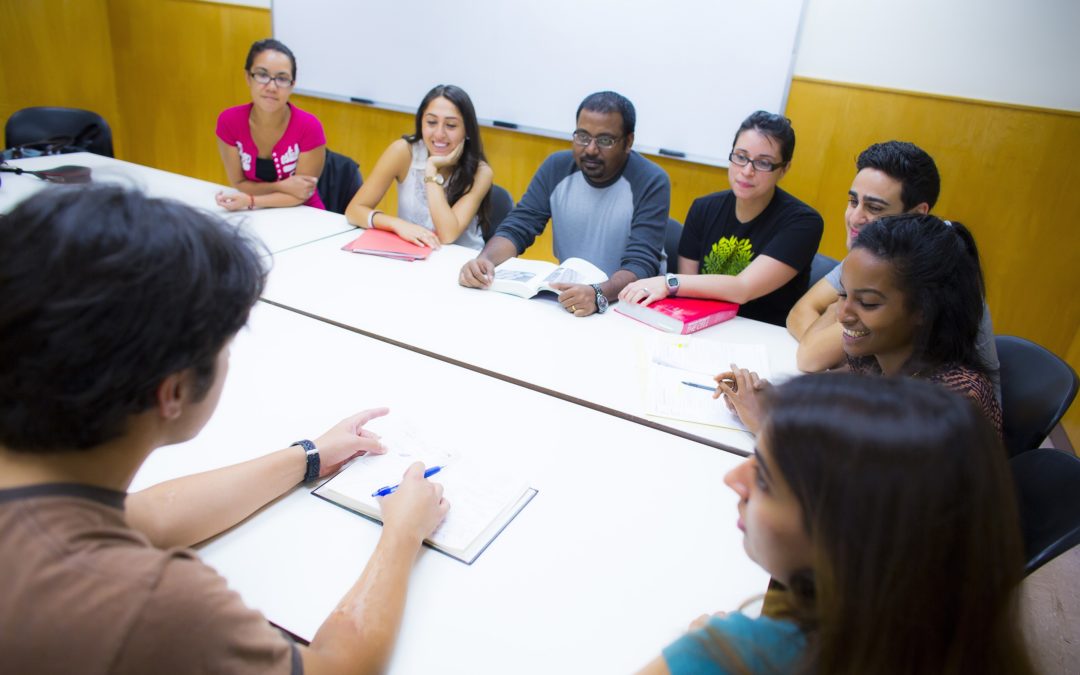There are nearly 400 academic courses and countless programs at Rutgers that address global health from varying perspectives: medical, cultural, economic, environmental, infrastructural, political, social, and technological.
What’s in store for Rutgers students this academic year? Faculty discuss some of the university’s educational and experiential opportunities in global health.
Building Relationships
“Social work is a global profession. We are teaching students about the United Nations’ Sustainable Development Goals and how social work is part of a multisectoral approach to achieving them. For example, when it comes to child protection social services, we build relationships with our colleagues in nursing and allied health because of their active roles in caring for the children.”
– Rebecca T. Davis
School of Social Work
Associate Professor for Professional Practice and Director of the Office of Global Social Work Programs
Disease Knows No Borders
“Because there is so much global travel for both business and leisure, it’s important to be aware of infectious diseases around the world. An infectious agent—such as a virus, bacteria, or parasites—could move from thousands of miles away into your backyard. Our infectious disease fellows often see patients who have traveled abroad and returned with a tropical infection, malaria being the most common. The infectious diseases fellowship curriculum includes lectures on tropical diseases—for example, helminthiasis, an infection caused by parasitic worms—that they may encounter in patients, particularly those who have weakened immune systems.”
– Tanaya Bhowmick
Robert Wood Johnson Medical School
Assistant Professor of Medicine, Infectious Diseases
Health Inequality Through a Sociological Lens
“My new course, ‘Topics in Sociological Analysis: Global Health,’ focuses on the disease burden in developing countries. We will critically discuss how poverty, inequality, culture, socioeconomic development, globalization, and health systems are related to health. Students, in their future work, no matter academic or practical, will need to pay attention to the immediate determinants of health, such as health behaviors and the use of health care, and also be aware of the more distant and fundamental causes of diseases, such as people’s socioeconomic status and structured social inequality.”
– Lei Lei
School of Arts and Sciences
Assistant Professor, Department of Sociology
Coming Together for Knowledge
“All are welcome to attend the Interdisciplinary Global Health Lecture Series—on the third Thursday of each month starting November 15—at New Jersey Medical School. A new year of thought-provoking topics will further our collaborative mission, as did last year’s lectures on radiology in Haiti, the Orbis Flying Eye Hospital, and Chinese white medicine.”
– Harsh Sule
New Jersey Medical School
Associate Professor of Emergency Medicine, Residency Program Director, and Associate Director of the Office of Global Health
Rutgers Serving New Jersey
“Our center has a 25-year history of bridging Rutgers undergraduate and graduate students with the Camden community through service-learning initiatives in various fields. We tend to align service learning with a sense of social justice in meeting the community’s health and wellness needs while also maintaining a connection to academic content. One of the best practices that we teach our students is how to work from an asset point of view, not deficit—strengths rather than negatives. Our communities are under crises on a daily basis, and they need reinforcement of strengths such as family values, cultural tradition, community rituals, and healing approaches that lead to healthy lifestyles.”
– Gloria Bonilla-Santiago
Rutgers–Camden Community Leadership Center
Director and Rutgers Board of Governors Distinguished Service Professor in Public Policy and Administration

